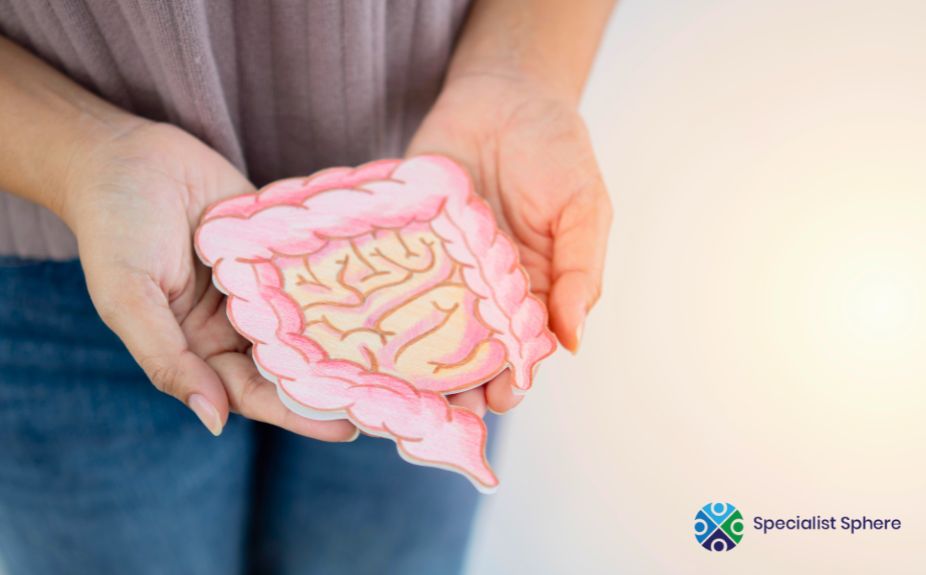What Is Leaky Gut Syndrome? Understanding Intestinal Permeability
Leaky gut syndrome, also known as increased intestinal permeability, is a condition where the intestinal lining in your stomach doesn’t function correctly. Normally, this lining acts as a tight barrier, controlling what gets absorbed into the bloodstream. In a leaky gut, small gaps form in this barrier, allowing toxins, undigested food particles, and other unwanted products of digestion to pass through. This triggers an immune response throughout your body, leading to a range of symptoms.
What are the symptoms of leaky gut?
Symptoms can be varied and may overlap with other conditions, making diagnosis challenging. Common signs include:
- Chronic diarrhea, constipation, bloating, and gas
- Chronic fatigue, joint, and muscle pain
- Skin problems like eczema, rashes, and acne
- Food sensitivities and intolerances
- Hypersensitivity reactions
Because these symptoms are so broad, improving your overall gut health is beneficial regardless of a specific diagnosis. Certain conditions like celiac disease and inflammatory bowel disease can also affect intestinal permeability, complicating the diagnosis and treatment.
What Causes Leaky Gut?
The most common cause of leaky gut is dysbiosis, an imbalance of microbiota (or gut flora) in the digestive system. This imbalance can weaken the intestinal barrier and increase permeability.
What factors contribute to dysbiosis and leaky gut?
Several factors can lead to dysbiosis and a compromised gut barrier:
- Diet: An unbalanced diet high in sugar, processed foods, unhealthy fats, and food additives.
- Alcohol: High alcohol consumption.
- Medication: The frequent use of non-steroidal anti-inflammatory drugs (NSAIDs) and antibiotics.
- Stress: High levels of chronic stress or anxiety.
- Trauma: Physical or emotional trauma.
How Can You Heal a Leaky Gut? Dietary and Lifestyle Changes
To strengthen your intestinal barrier and heal a leaky gut, you need to cultivate a healthy and diverse gut microbiota. Making key dietary changes can significantly improve your gut health.
How to improve gut health with your diet?
In addition to limiting alcohol, processed foods, and unhealthy fats, focus on these key dietary strategies:
1. Add Probiotics and Prebiotics to Your Diet
- Probiotics are live microorganisms that restore your gut flora. They’re found in fermented foods like kimchi, sauerkraut, kombucha, and miso, as well as fermented dairy products such as yogurt, kefir, and buttermilk.
- Prebiotics are fibers that act as food for the “good bacteria” in your gut. Incorporate prebiotic-rich foods such as onions, leeks, bananas, barley, oats, asparagus, and apples into your meals.
2. Increase Your Fiber Intake
Dietary fiber is essential for a healthy gut. It works similarly to prebiotics, nourishing the beneficial bacteria. Studies show that a fiber-rich diet strengthens the intestinal lining and helps maintain a balanced microbiota, while low-fiber diets can weaken the barrier and increase bad bacteria.
Good sources of dietary fiber include:
- Whole wheat flour
- Nuts, seeds, beans, and lentils
- Barley and oats
- Apples and citrus fruits
- Cauliflower, green beans, carrots, and potatoes
3. Incorporate Zinc into Your Routine
Getting the right amount of zinc is crucial for intestinal health. Both too much and too little zinc can negatively affect intestinal permeability. If you’re concerned about your zinc levels, consult a doctor about supplementation or adjusting your diet.
Zinc-rich foods include:
- Oysters and fish
- Milk and dairy products
- Legumes
- Nuts
- Eggs


